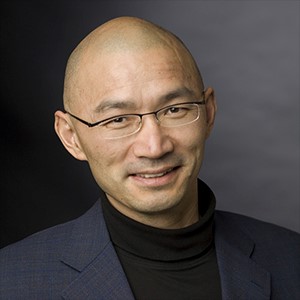
Research
Our work is exemplified in the following:
- Quantitative susceptibility mapping (QSM) to solve the field-to-susceptibility inverse problem using the Bayesian inference. Tissue susceptibility reflects molecular electron cloud properties and QSM enables its precise quantitative study. QSM has become a very active field of studying tissue magnetism for applications in neurodegeneration, inflammation, oxygen consumption, hemorrhage, liver, osteoporosis, atherosclerosis, and drug delivery. QSM is increasingly used in clinical practice, particularly in precision targeting for deep brain stimulation, precision monitoring of chronic active hemorrhages and inflammation, precision medication for iron chelation therapy, and precision diagnosis and gadolinium-free imaging for multiple sclerosis.
- Quantitative transport mapping (QTM) to solve the inverse problem from imaging to tissue perfusion quantification. We develop fast dynamic imaging (4D) to capture tracer (drugs, contrast agents and spin labels) transport in tissue using super resolution, sparsity, and deep learning techniques. Perfusion parameters affect imaging through convolution in space time according to transport equation of mass and momentum flux laws. We develop QTM to deconvolve 4D time resolved imaging for perfusion quantification. QTM enables precise measurement of blood flow in tissue and helps with precise delivery of therapeutic drugs, cryotherapy and tissue ablation.
- Lesion segmentation from acquired images to enable automated precise measurements and analyses of disease burden. We employ various image segmentation techniques including image feature-based approaches and deep neural network-based approaches.
Current Projects:
- Fluid mechanics approach to tissue perfusion quantification in MRI,
- Quantitative MRI-based cerebral oxygen metabolism in Alzheimer’s disease,
- Fluid mechanics based quantification of tau PET for Alzheimer's disease,
- Quantitative cerebral oxygen metabolic imaging of acute ischemic stroke
- MR imaging based QSM for estimating outcome and guiding patient selection and surgery in DBS of PD.
Bio
Dr. Yi Wang, Ph.D., obtained his BS in Nuclear Physics from Fudan University in 1986. He then went on to complete his PhD in Medical Physics from the University o Wisconsin, Madison, in 1994. He completed his postdoctoral training at the Mayo Clinic in Rochester, Minnesota in 1996. He now holds the Faculty Distinguished Professorship in the Department of Radiology, and is a tenured Professor of Physics in Radiology, Director of the Magnetic Resonance Imaging (MRI) Research Institute at Weill Cornell Medicine (WCM), and Professor of Biomedical Engineering at Cornell University.
Distinctions:
- Graduate Fellowship, University of Wisconsin-1988
- Advanced Richard B. Mazess Scholarship, University of Wisconsin-1993
- Fellow, American Institute for Medical and Biological Engineering (AIMBE)-2006
- Fellow, International Society of Magnetic Resonance in Medicine (ISMRM)-2012
- Fellow, Institute of Electrical and Electronics Engineers (IEEE)-2014
- Distinguished Investigator Award, Academy of Radiology Research-2015
- NIH Advisory Panel on Review of Imaging Science-2017
- OCSMRM Honorary Lifetime Member-2020
Selected Publications:
- Zhang Q, Luo X, Zhou L, Nguyen TD, Prince MR, Spincemaille P, Wang Y. Fluid mechanics approach to perfusion quantification: vasculature computational fluid dynamics simulation, quantitative transport mapping (QTM) analysis of dynamics contrast enhanced MRI, and application in nonalcoholic fatty liver disease classification. IEEE Trans Biomed Eng. 2022 Sep 15;PP. doi: 10.1109/TBME.2022.3207057. PMID: 36107908
- Zhou L, Zhang Q, Spincemaille P, Nguyen TD, Morgan J, Dai W, Li Y, Gupta A, Prince MR, Wang Y. Quantitative transport mapping (QTM) of the kidney with an approximate microvascular network. Magn Reson Med. 2020 Nov 18. doi: 10.1002/mrm.28584. PMID: 33210310
- Cho J, Zhang J, Spincemaille P, Zhang H, Hubertus S, Wen Y, Jafari R, Zhang S, Nguyen TD, Dimov AV, Gupta A, Wang Y. QQ-NET – using deep learning to solve Quantitative Susceptibility Mapping and Quantitative Blood Oxygen Level Dependent magnitude (QSM+qBOLD or QQ) based Oxygen Extraction Fraction (OEF) mapping. Magn Reson Med. 2021, doi: 10.1002/mrm.29057. PMID: 34719059
- Jafari R, Spincemaille P, Zhang J, Nguyen TD, Luo X, Cho J, Margolis D, Prince MR, Wang Y. Deep neural network for water/fat separation: Supervised training, unsupervised training, and no training. Magn Reson Med. 2020 Oct 26. doi: 10.1002/mrm.28546. PMID: 33107127
- Dimov AV, Nguyen TD, Gillen KM, Marcille M, Spincemaille P, Pitt D, Gauthier SA, Wang Y. Susceptibility source separation from gradient echo data using magnitude decay modeling. J Neuroimaging. 2022 Jun 6. doi: 10.1111/jon.13014. PMID: 35668022
